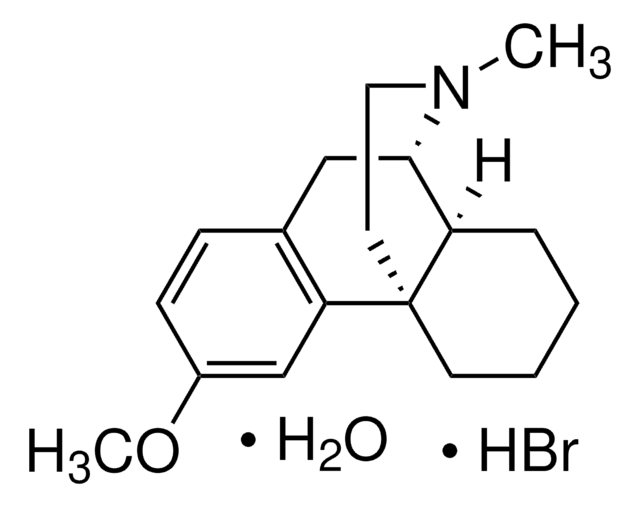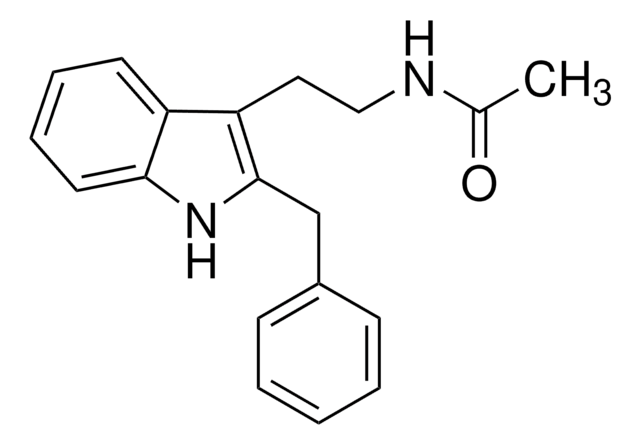P0778
Pindolol
≥98% (TLC), powder
Synonym(s):
1-(1H-Indol-4-yloxy)-3-(isopropylamino)-2-propanol, 1-(1H-Indol-4-yloxy)-3-[(1-methylethyl)amino]-2-propanol
About This Item
Recommended Products
Assay
≥98% (TLC)
form
powder
color
white to off-white
mp
167-171 °C (lit.)
solubility
0.1 M NaOH: 0.2 mg/mL
45% (w/v) aq 2-hydroxypropyl-β-cyclodextrin: 0.2 mg/mL
0.1 M HCl: 20 mg/mL
acetic acid: 50 mg/mL
H2O: insoluble
originator
Novartis
storage temp.
2-8°C
SMILES string
CC(C)NCC(O)COc1cccc2[nH]ccc12
InChI
1S/C14H20N2O2/c1-10(2)16-8-11(17)9-18-14-5-3-4-13-12(14)6-7-15-13/h3-7,10-11,15-17H,8-9H2,1-2H3
InChI key
JZQKKSLKJUAGIC-UHFFFAOYSA-N
Gene Information
human ... ADRB1(153) , ADRB2(154) , HTR1A(3350)
Looking for similar products? Visit Product Comparison Guide
Application
Biochem/physiol Actions
Features and Benefits
Signal Word
Warning
Hazard Statements
Precautionary Statements
Hazard Classifications
Acute Tox. 4 Oral - Eye Irrit. 2 - Skin Irrit. 2 - STOT SE 3
Target Organs
Respiratory system
Storage Class Code
11 - Combustible Solids
WGK
WGK 3
Personal Protective Equipment
Certificates of Analysis (COA)
Search for Certificates of Analysis (COA) by entering the products Lot/Batch Number. Lot and Batch Numbers can be found on a product’s label following the words ‘Lot’ or ‘Batch’.
Already Own This Product?
Find documentation for the products that you have recently purchased in the Document Library.
Customers Also Viewed
Articles
Discover Bioactive Small Molecules for ADME/Tox
Discover Bioactive Small Molecules for ADME/Tox
Discover Bioactive Small Molecules for ADME/Tox
Discover Bioactive Small Molecules for ADME/Tox
Chromatograms
application for HPLCapplication for HPLCOur team of scientists has experience in all areas of research including Life Science, Material Science, Chemical Synthesis, Chromatography, Analytical and many others.
Contact Technical Service















